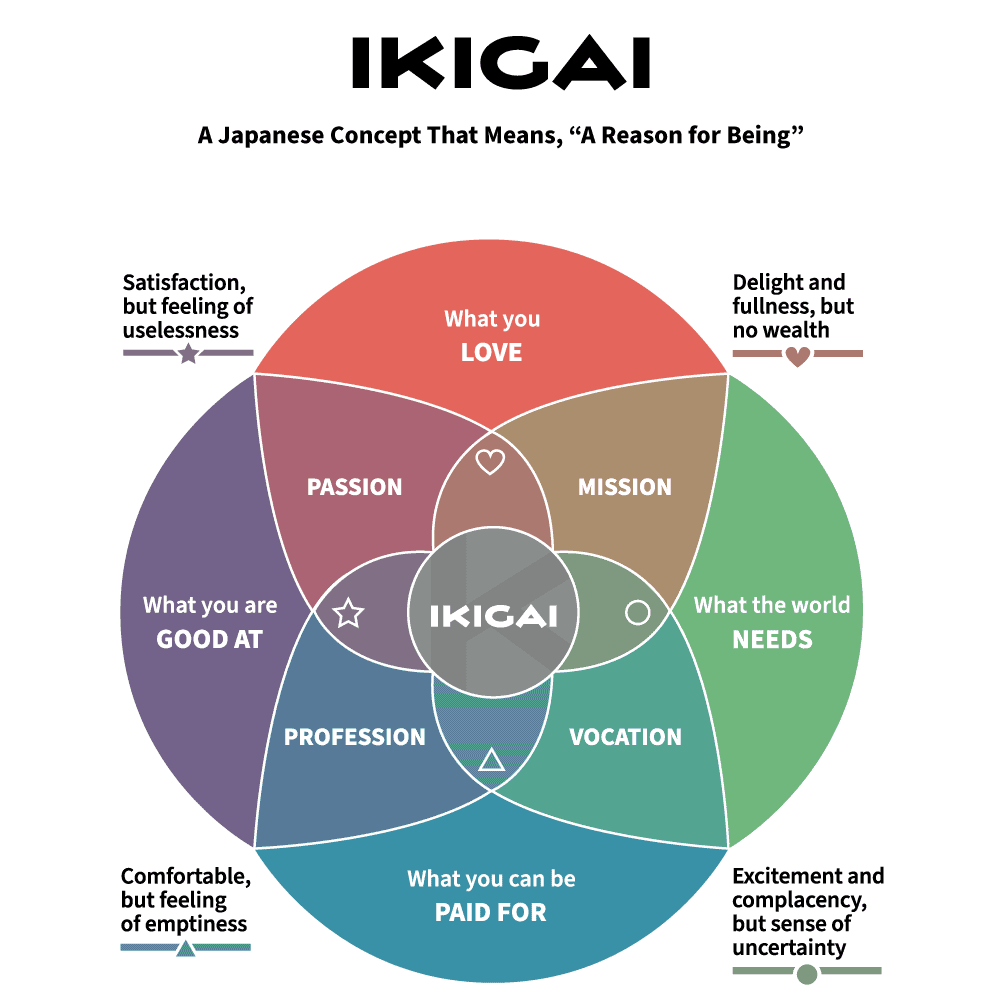Ikigai
Ikigai is a Japanese concept of a motivating force that gives someone a sense of purpose for loving. Ikigai literally translates into a reason for being.
For a general interpretation of Life in the context of Life-Disciplines-Pillars, see LDP/600 Resources/Life (LDP).
If one can properly define their Ikigai, they should then have a clear direction on what to do to increase well-being and sustain happiness.
Ikigai has two important concepts.
- the reality that sources or objects that brings value or meaning to life
- the psychology of a feeling that one’s life has value or meaning because of the existence of its source or object
That being said, if something gives you value but you don’t believe it does, that does not help you reach Ikigai. If you have value in something but it isn’t valuable, that also does not help you. You have to value it and it needs to be of value.
Through the Lens of Society
Ikigai can be further conceptualized through its social impacts.
- Social Ikigai: Ikigai that are socially accepted (e.g. volunteer work)
- Non-social Ikigai: Ikigai that are not related to society (e.g. faith)
- Anti-social Ikigai: Ikigai that relate fundamental psychological emotions (e.g. survival, revenge)
This is merely a social categorization of various Ikigai, try not to use force fit yourself into one concept.
Defining Your Ikigai
There is no way for someone else to define your Ikigai. Everyone is different and they must go through their own journey to discover it. If you blindly follow someone else’s values, you will almost surely be unsatisfied with it. Ikigai is extremely personalized.
A good Ikigai should maintain balance of love, skills, worldly needs, and sustainability. Refer to the diagram below.

Sources Ikigai - Wikipedia How To Find Your Ikigai And Transform Your Outlook On Life And Business The Formula to Finding Purpose: How to Find Your Ikigai - Kanban Zone